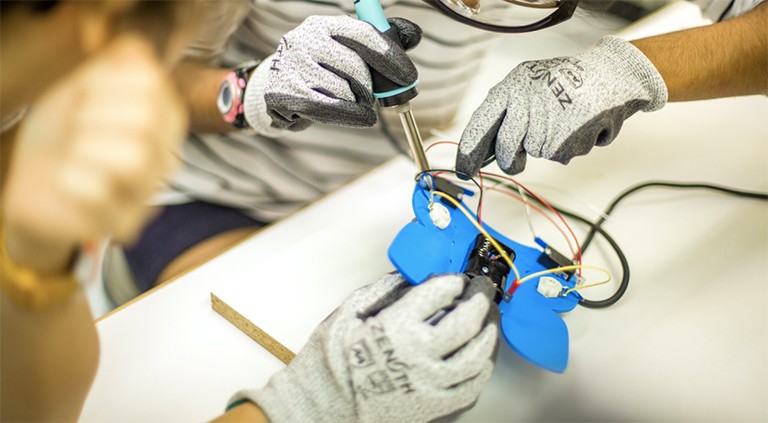Concordia forges a new admissions pathway for First Nations, Inuit and Métis students

Beginning next fall, Indigenous students who do not qualify for Concordia’s traditional entry requirements will have a new pathway into university.
Aimed at filling a gap in Indigenous admissions, the Kaié:ri Nikawerá:ke Indigenous Bridging Program is a university preparatory program designed to help Indigenous students gain the prerequisite courses needed to study at Concordia.
For its inaugural fall 2023 term, the program welcomes students interested in the Bachelor of Engineering degree to apply. Through this initiative by Concordia’s Office of Indigenous Directions, eligible First Nations, Inuit and Métis peoples who lack the required engineering prerequisites will be able to enrol in math and science courses.
To facilitate their transition into undergraduate studies, they will also follow university skills courses designed by the Student Success Centre and participate in events at the Otsenhákta Student Centre.
Moving toward Indigenous futures
The creation of the Kaié:ri Nikawerá:ke Indigenous Bridging Program is one of the steps outlined in Concordia’s Indigenous Directions Action Plan, which provides concrete actions to decolonize and indigenize the university.
Manon Tremblay, senior director of Indigenous Directions, says that this action plan also functions to remove barriers to postsecondary education for Indigenous students, as they are often at a disadvantage when it comes to taking math and science courses required for science, technology, engineering and mathematics (STEM) programs.
In many remote communities, certain courses are not offered to students due to a lack of teachers, leaving students unable to complete their high school diplomas and move on to CEGEP or university.
“This is one of the needs that we identified as pressing. In our communities many potential students just don’t have access to the prerequisites they need to get into postsecondary education,” she says. “This is where we want this program to change things.”
Bridging the gap between home and school
“Kaié:ri Nikawerá:ke,” a Kanien’kéha term, translates to “the four winds” or “the four directions.” The program was named by Katsistohkwí:io Jacco, interim coordinator of the Otsenhákta Student Centre, to honour the local territories and ancestral language of the Kanien’kehá:ka.
The titular four winds represent a shift in the natural world as they promote the growth and rebirth of plant life. It is also a nod to Concordia’s four faculties, recognizing that students come from many different directions.
As the first of its kind in Quebec, the bridging program is built on a vision that has always been holistic in nature. Saba Din, the Kaié:ri Nikawerá:ke Indigenous Bridging Program coordinator, says this will ensure that students feel supported on this journey through the creation of a seminar course.
Led by an Indigenous facilitator, the seminar addresses individual student needs, whether academic, social, cultural or spiritual.
“We’re trying to find opportunities for students to feel connected to their community through the seminar course, and vice versa,” Din explains. “The goal is for students to see that the work they’re doing is going to benefit them and their home as well.”
Reconciling two cultures — their home communities and university life in the city — is something that Tremblay hopes future Indigenous students can begin to work through in the seminar.
“Programs like this end up bridging in more ways than we expect them to,” she notes.
“Students who are successful and end up graduating from their programs are sending a message to youth in their communities. If someone comes back to the community as a fully minted engineer or psychologist, they’re showing their community that they can do this too.”
Find out more about Concordia’s Kaié:ri Nikawerá:ke Indigenous Bridging Program.


